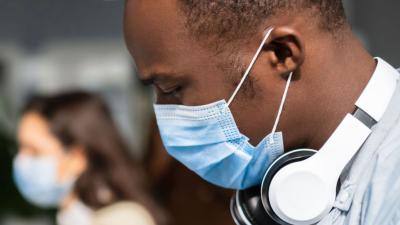
Supporting global communities in making sense of risk
A blog from Padmini Ravi, Project Manager – Risk Know-How, Sense about Science.
This page is approximately a 4 minute read
This page was published on

The events of the past 18 months have focused employers’ attention as never before on keeping employees healthy and safe as the price of doing business. For workers whose jobs could not be carried out from home, ensuring production or service continuity involved rethinking workplace layouts, staffing levels and work procedures to limit proximity and avoid spreading the coronavirus. In many organisations where safety and health is managed as a compliance issue, keeping to the minimum standards required by law, these adjustments often took time and were imposed on employees from the outside.
At L’Oréal processes and operations to protect their employees were put in place globally within weeks through a central coordination crisis management team. Employees around the world moved to convert factories and produce millions of units of hand sanitiser, which was given for free distribution to front line covid-19 employees including hospitals and care homes. The rapid transition was made possible by years of work by the world #1 beauty company to engage employees in health, safety and wellbeing and to treat them as a valued resource whose safety, health and wellbeing was a key organisational core value. This is achieved through their approach of risk management, excellence and beyond, putting people at the centre of their programmes and the application of the “right tool at the right time” dependent on health and safety cultural maturity. This approach includes programmes such as MESUR, in which line managers engage in regular safety conversations with team members asking open-ended questions, listening to the answers and working together on solutions. L’Oréal’s workforce has built up a sense that they are central to maintaining a safe and healthy working environment. The “Safe at Work-Safe at Home” initiative, launched in 2016, increases employees’ understanding of risk at home or in the workplace while reinforcing the message that their health and safety and that of their families is an absolute priority for which there is no compromise.
L’Oréal is working with the Capitals Coalition’s Valuing Human Capital in Occupational Health & Safety project group to gather evidence of the benefits to businesses of this approach to investing in human capital. The group brings together safety and health and sustainability specialists with experience of successful people-centred corporate programmes. They want to promote the importance of rebalancing sustainability management, reporting and decision making to focus on the human component as well as environmental issues.
Educating safety and health professionals in the benefits of a human-capital-centred – rather than simply compliance-led – approach to worker protection is a priority for the Capitals Coalition not simply because it makes organisations resilient to shocks, as in L’Oréal’s case, but because it can help drive better business decisions and contribute to a holistic view of the resources industry needs to thrive responsibly.
The Capitals Coalition campaigns for the recognition of natural, human and social capital alongside produced capital in the form of goods and money as the foundations of sustainable economies. Failing to account for the true value of the natural resources and people they rely on has left most organisations prone to blinkered decision making and unequipped for the challenges of the transition to a zero-carbon economy.
This shift in what is meant by value is the driving force behind Lloyds Register Foundation’s current research which seeks to assess the status, and effectiveness, of current methodologies to value safety. The aim is to update how we integrate the value of safety into corporate decision making.
Investors, governments and the public increasingly expect corporations to show that they understand and take responsibility for their impacts on nature and society and to become part of the solution, rather than the problem, through alignment to objectives such as the UN’s Sustainable Development Goals. The capitals approach – which any organisation can adopt by implementing the Natural Capital Protocol and the Social and Human Capital Protocol - offers a framework for companies to contribute to these goals by allocating true value to the resources they depend on.
Nurturing and protecting employees is part of that value attribution. It helped L’Oréal weather the pandemic and it is fundamental to sustainable, profitable business that puts people at the centre.
Disclaimer: all blogs featured are the views of the author and not representative of Lloyd's Register Foundation.